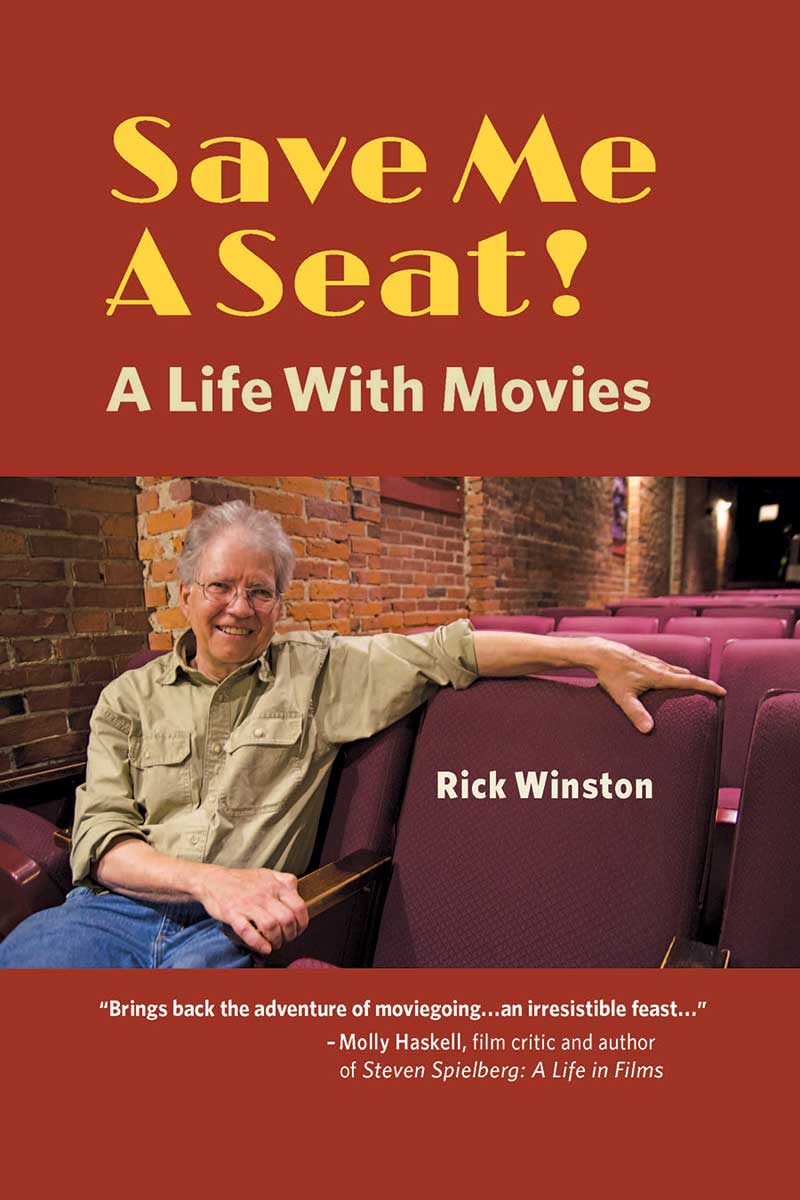from the introduction by Barry Snyder:
Rick Winston’s genial and companionable memoir is the chronicle of a lifelong love affair with movies. Movies, the pleasure of movies, the ways in which movies bring people and communities together and change lives, movies in general and movies in particular, fill the book. The telling has the pleasant feel of a conversation with a very knowledgeable friend about films, about experiences seeing films, about connections to other moviegoers and to the world at large by way of film, and about people, including renowned critics and filmmakers, met along the way. The taste is maple syrup on popcorn, the flavoring courtesy of Winston’s fateful decision, as a still young man and erstwhile urbanite, to settle in a farmhouse in rural Vermont, a move that presaged the most unlikely and unique part of his story: his founding of the Green Mountain State’s first and only genuine “art house” movie theater, the Savoy.
For cinephiles, the general arc of his story up to that point will be familiar: his early exposure to the idea of something special about movies (Winston credits his movie-loving dad), his discovery of classic American films on TV, and his growing awareness of the larger world of films through books on the history of cinema. A bit further down the road, his knowledge and appreciation of films would expand through exposure to the curated offerings, including foreign films, of legendary art house theaters like the Thalia, the Bleecker Street Cinema, and the New Yorker in New York City and, during what he describes as a turbulent year at the University of California, the Telegraph Repertory Cinema in Berkeley.
Where Winston’s particular case of cinephiliatakes a more singular turn follows his move to Vermont, lured, like so many others of similar age, by the back-to-the-land enthusiasm that abounded in the 1960s. Like other “urban refugees,” Winston was disappointed by the scarcity of cultural amenities in rural Vermont, and particularly the absence of the kinds and quantities of films he had become used to seeing—needed to see—as a condition of his affliction. The serendipitous solution—to start his own film society, leading to the creation of a theater in a building and space that coincidentally turned out to have housed one in the nickelodeon era—was the turning point of his professional life.

